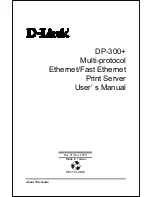
Appendix B: POST Code Diagnostic LED Decoder
Revision
1.3
Intel order number E44588-003
44
Appendix B: POST Code Diagnostic LED Decoder
The BIOS executes platform configuration processes during the system boot. Each process is
assigned a specific hex POST code number. As each configuration routine is started, the BIOS
displays the POST code on the POST Code Diagnostic LEDs on the back edge of the server
board. The Diagnostic LEDs identify the last POST process to be executed.
Each POST code is represented by the eight amber Diagnostic LEDs. The POST codes are
divided into two nibbles: an upper nibble and a lower nibble. The upper nibble bits are
represented by Diagnostic LEDs #4, #5, #6, and #7. The lower nibble bits are represented by
Diagnostics LEDs #0, #1, #2, and #3. Given the bit is set in the upper and lower nibbles, and
then the corresponding LED is lit. If the bit is clear, corresponding LED is off.
Diagnostic LED #7 is labeled as “MSB” and the Diagnostic LED #0 is labeled as “LSB”.
A. ID LED
F. Diagnostic LED #4
B. Status LED
G. Diagnostic LED #3
C. Diagnostic LED #7 (MSB LED)
H. Diagnostic LED #2
D. Diagnostic LED #6
I. Diagnostic LED #1
E. Diagnostic LED #5
J. Diagnostic LED #0 (LSB LED)
Figure 16. Diagnostic LED Placement Diagram
In the following example, the BIOS sends a value of ACh to the diagnostic LED decoder. The
LEDs are decoded as follows:
Table 25. POST Progress Code LED Example
Upper Nibble LEDs
Lower Nibble LEDs
MSB
LSB
LED #7
LED #6
LED #5
LED #4
LED #3
LED #2
LED #1
LED #0
8h 4h 2h 1h 8h 4h 2h 1h
Status
ON OFF ON OFF ON ON OFF OFF
1 0 1 0 1 1 0 0
Ah Ch
Upper nibble bits = 1010b = Ah; Lower nibble bits = 1100b = Ch; the two are concatenated as
ACh.











































